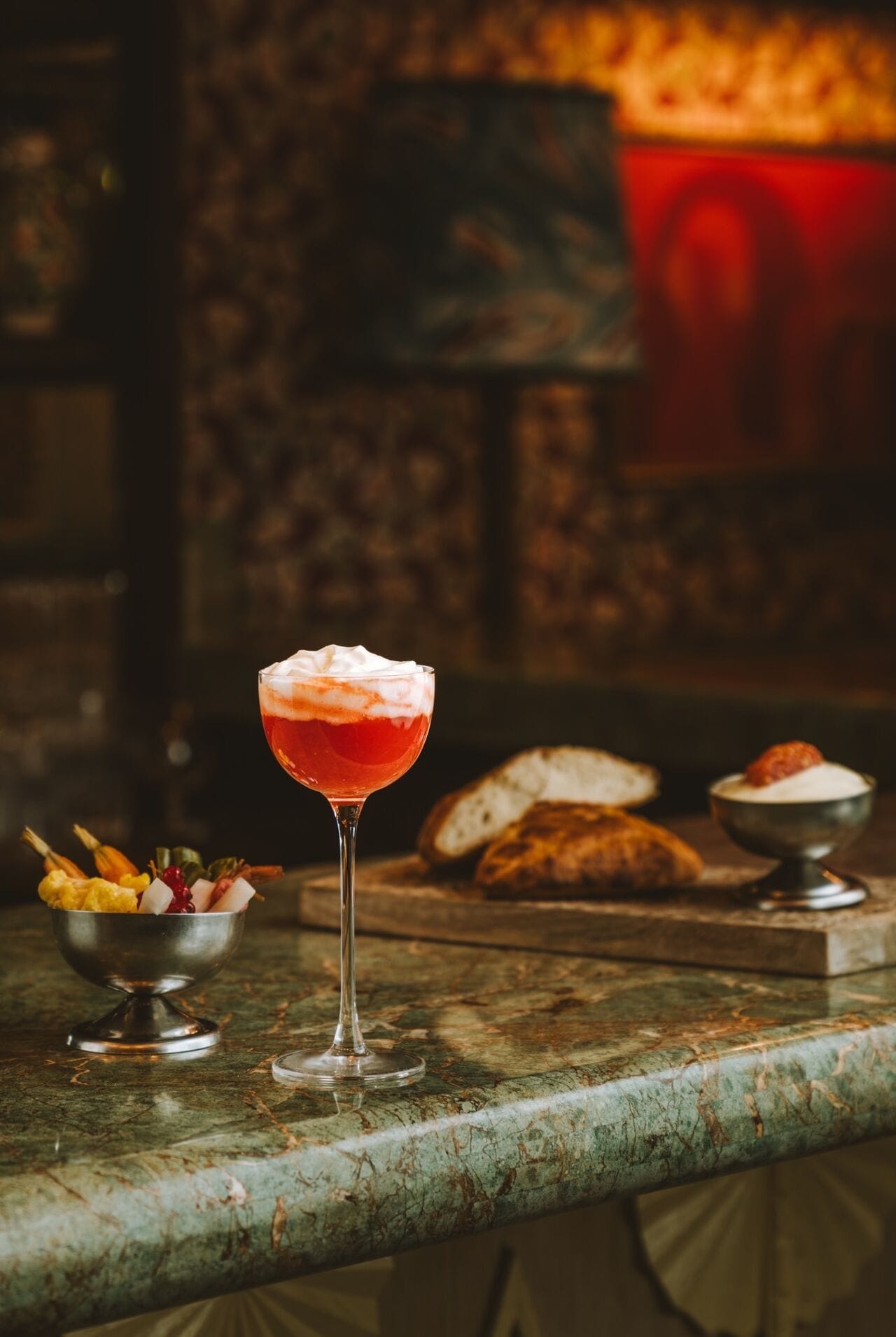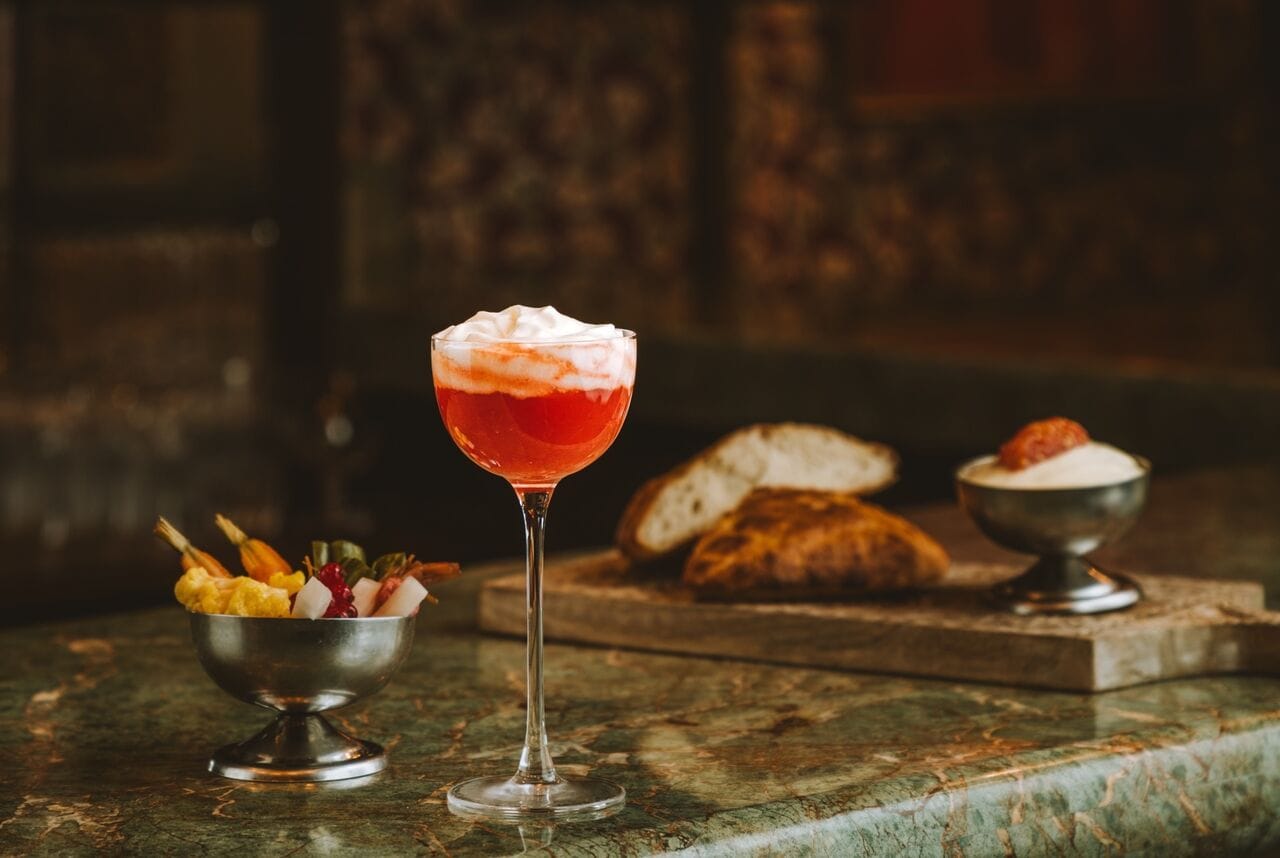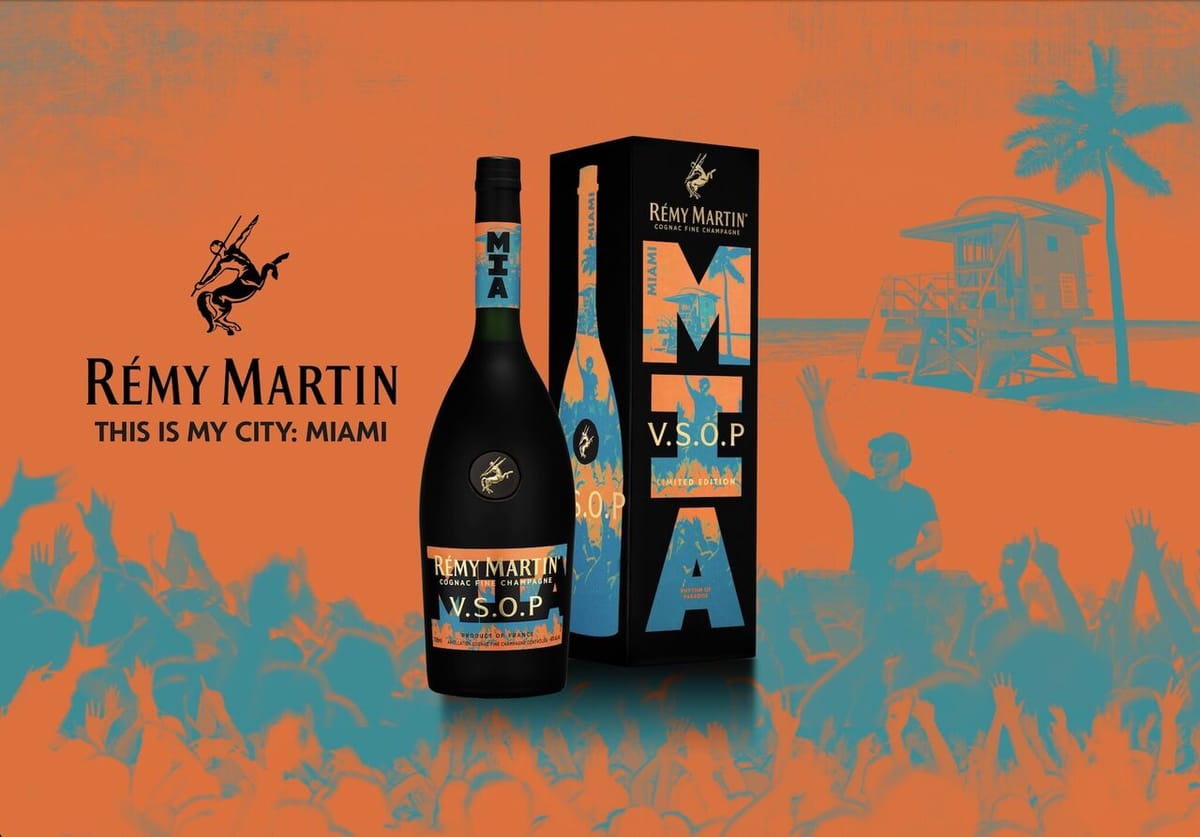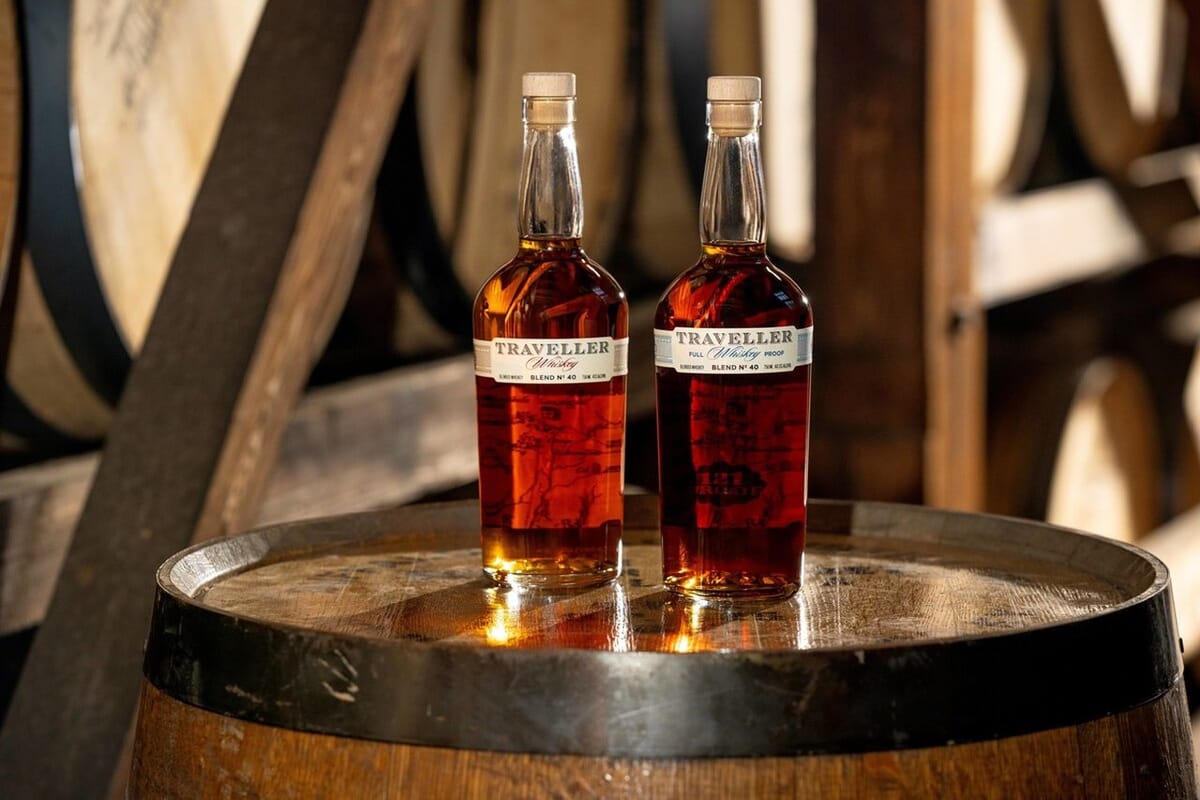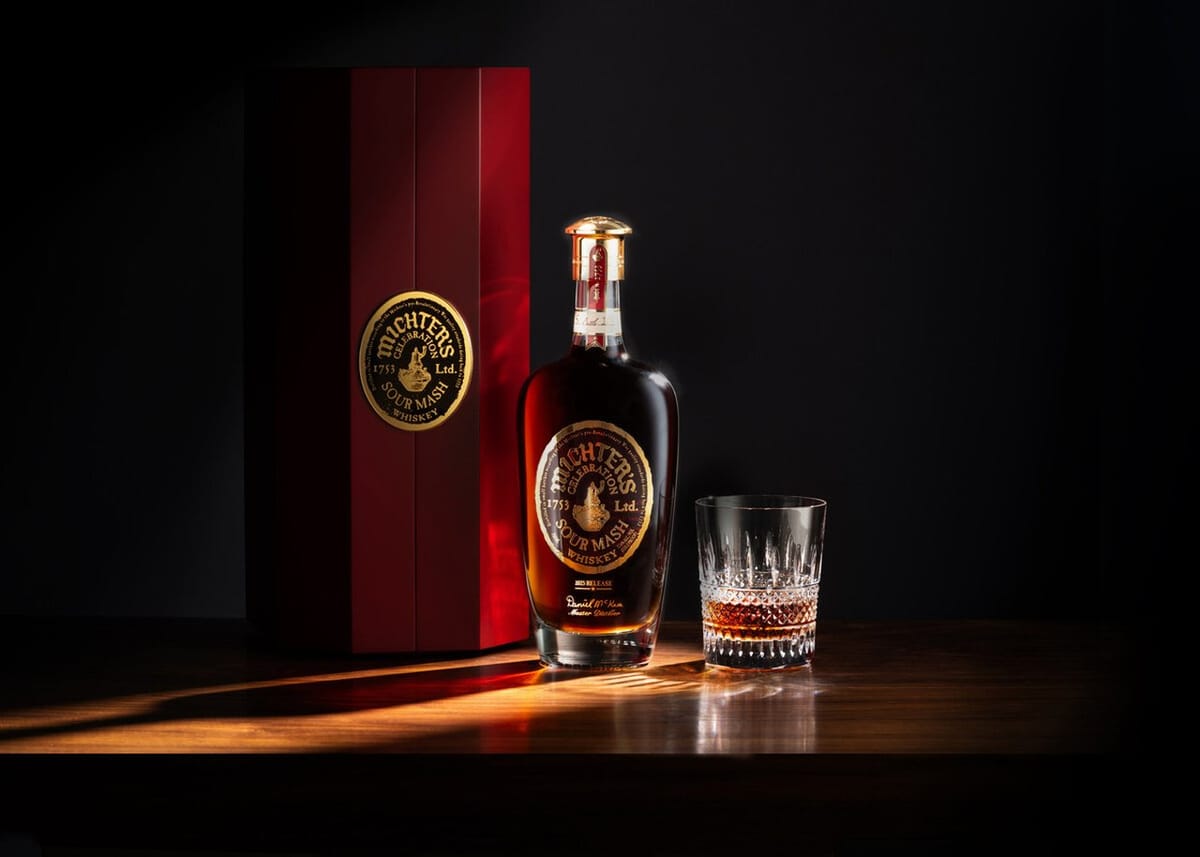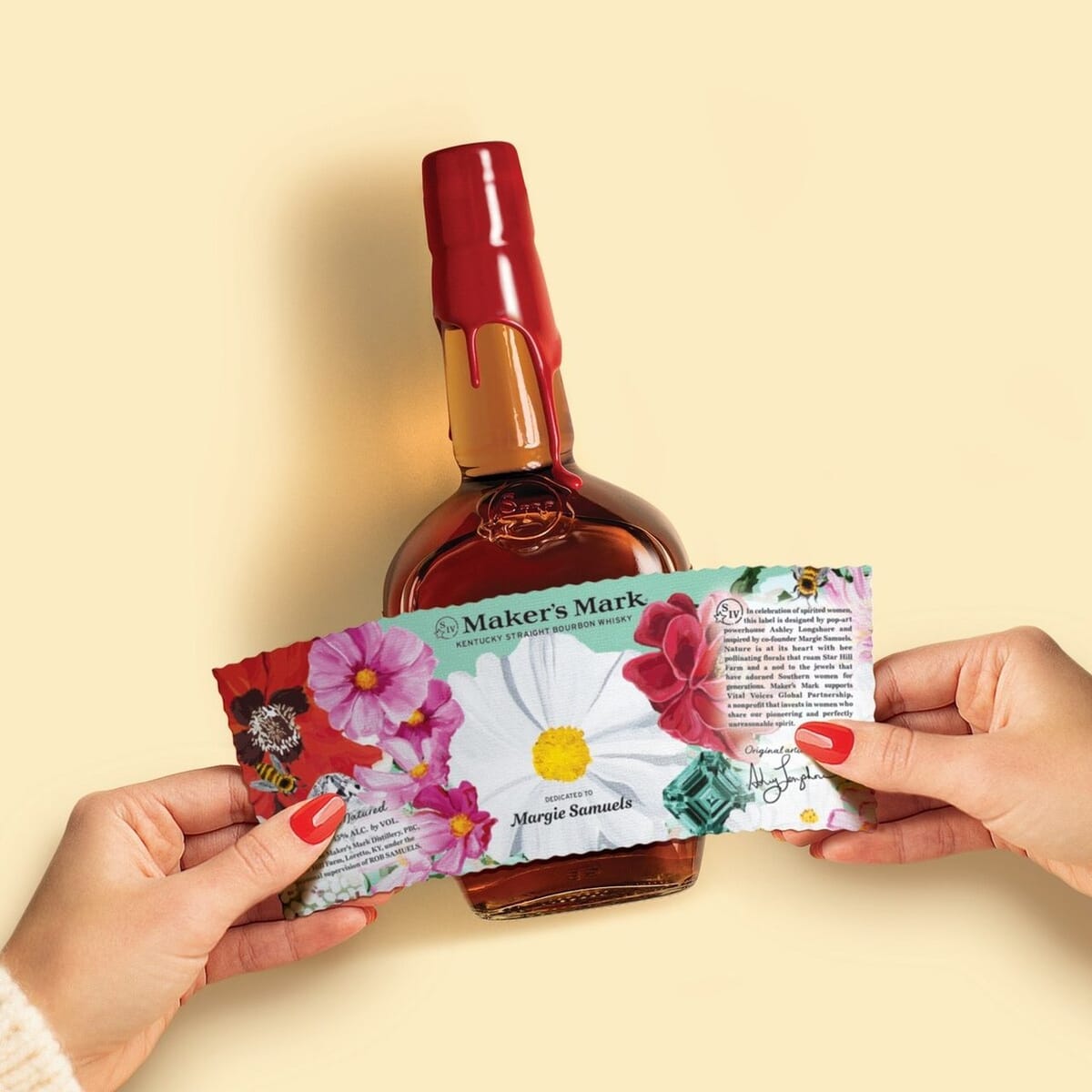Discover Boubalé with Maxime Caillet and Virgile Texier
Boubalé at the Grand Mazarin Hotel is among September’s top new openings. For Jigger Daily, Maxime Caillet and Virgile Texier discuss the bar’s concept, how the restaurant shapes the menu, and the advantages of being part of a hotel group.
Even though it’s attached to the restaurant, the Boubalé bar stands on its own.
The word Boubalé comes from Yiddish and means "my little doll," "my little darling"; it is the affectionate name a grandmother gives her granddaughter. The story of Boubalé — both restaurant and bar — is inspired by Ashkenazi culture, because the group’s chef, Assaf Granit — known for his Mediterranean and Sephardic-inspired restaurants — wanted to honor the other side of his family heritage by focusing on Central Europe.
The bar operates at the same time as the restaurant but also independently; it’s the hotel’s social gathering place. Our goal is to create a menu aligned with Chef Assaf’s vision, while expressing his style through our cocktails.
That was the initial challenge: to be a genuine cocktail bar, open daily from noon to 2 a.m., offering the advantages of five-star service in a convivial, festive atmosphere. This isn’t all that common.
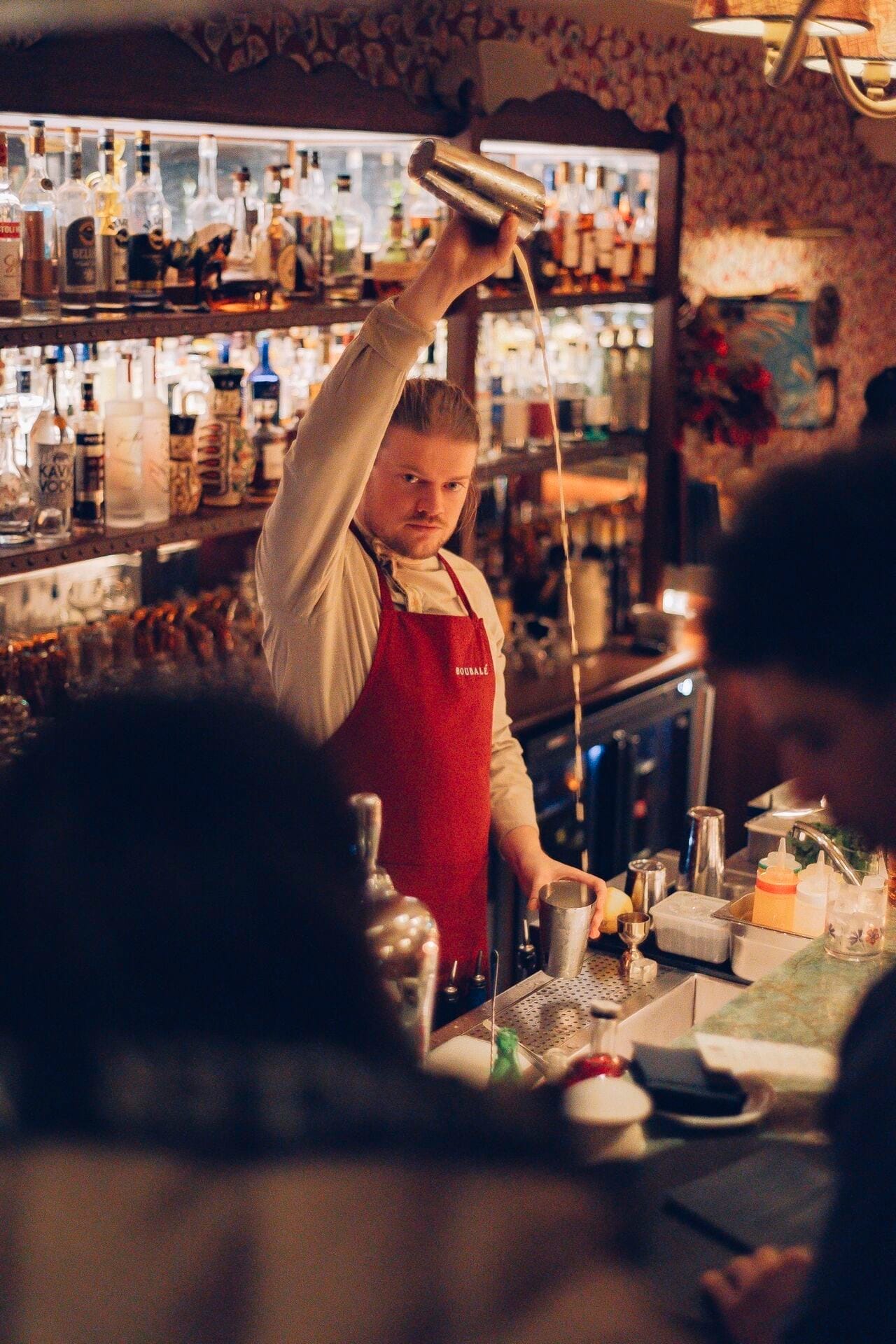
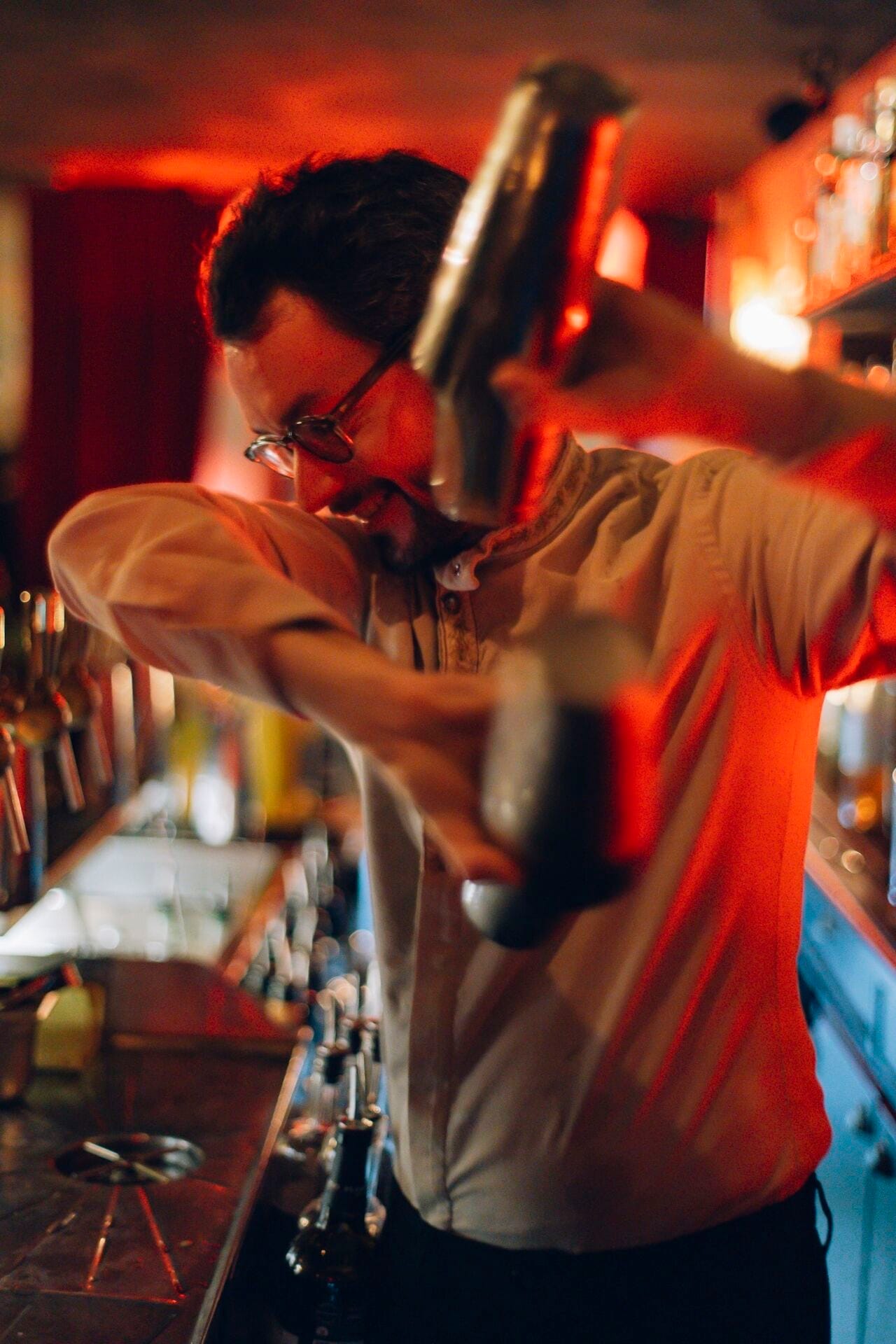
Maxime Caillet (left) and Virgile Texier (right), captured by 📷 Louis Camelin
The advantages of a hotel bar in serving cocktails.
We are both new to the hotel world, and for the first time, we have the space we need to be creative. In previous establishments, we had to find a spot to do our prep work during closing hours. Here, because the bar is always open, the team can keep working in the back office.
Hotel guests likely account for 15–20% of our total patronage. Our location in Paris brings in many customers in the afternoon, often for a warm beverage. However, we’re delighted to see more and more people — even those outside our usual circle — coming specifically for the bar. Early on, things used to quiet down around midnight, but now the place stays lively until 2 a.m. Boubalé is beginning to be recognized as a cocktail destination.
Moreover, a second bar — slightly larger than this one — should open early this year in the basement. It will be a very festive cabaret-style space, with a drink menu possibly less focused on Eastern flavors. Initially, it will open two days a week, then three, and may expand further if it proves popular.
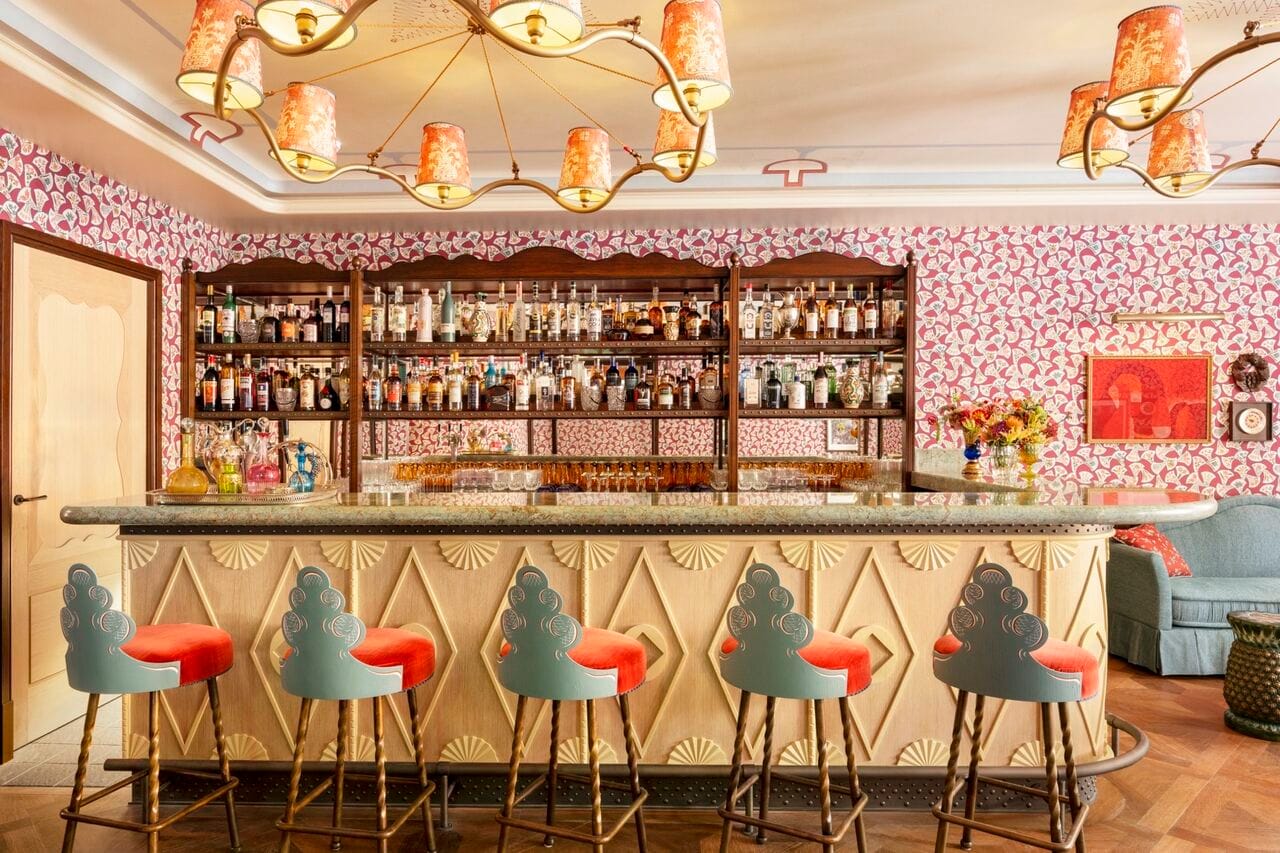
Interaction with the restaurant.
This first menu serves as an introduction to Boubalé’s world and the spirit of the place, developed in collaboration with chefs Assaf and Itamar. Our menu centers on regions east of France—from Germany all the way to Israel, since Ashkenazi culture extends there.
To achieve this, we have frequent exchanges with Chef Itamar about spices and flavors; He shares stories, which adds to our own cultural research. This helps us pair flavors, matching cocktails with dishes. The restaurant team regularly tastes our creations, and we explain the aromatic profiles and the backstory behind each cocktail so they can present them effectively.
Additionally, you can order from the restaurant menu right at the bar counter. That way, we can offer more complete pairings. Later, we’ll have a finger-food selection that’s better suited.
Sometimes, one of us might even pop over to a restaurant table to introduce the cocktails. If we can communicate with guests and suggest evolving cocktails throughout their meal, we’ve really accomplished something special.
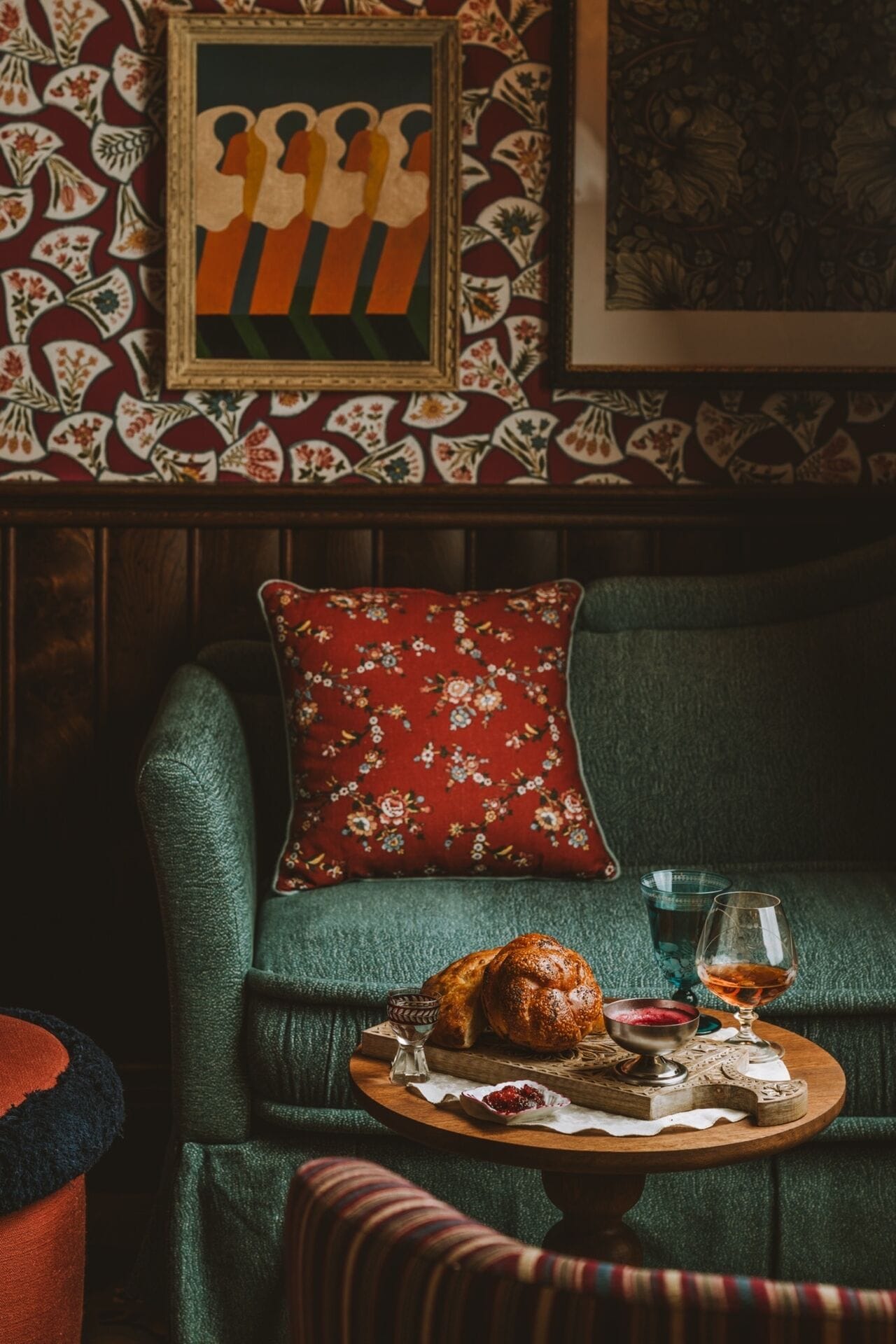
A menu designed as a journey through various traditions.
We set ourselves a challenge: to reinterpret a dish or tradition as a cocktail. For example, the Chouchou cocktail is inspired by rice-stuffed vine leaves. It has a slight vinegary aspect, referencing stuffed cabbage, using red cabbage; it features sake to evoke the rice, and sparkling wine plus verjuice to hint at vine leaves.
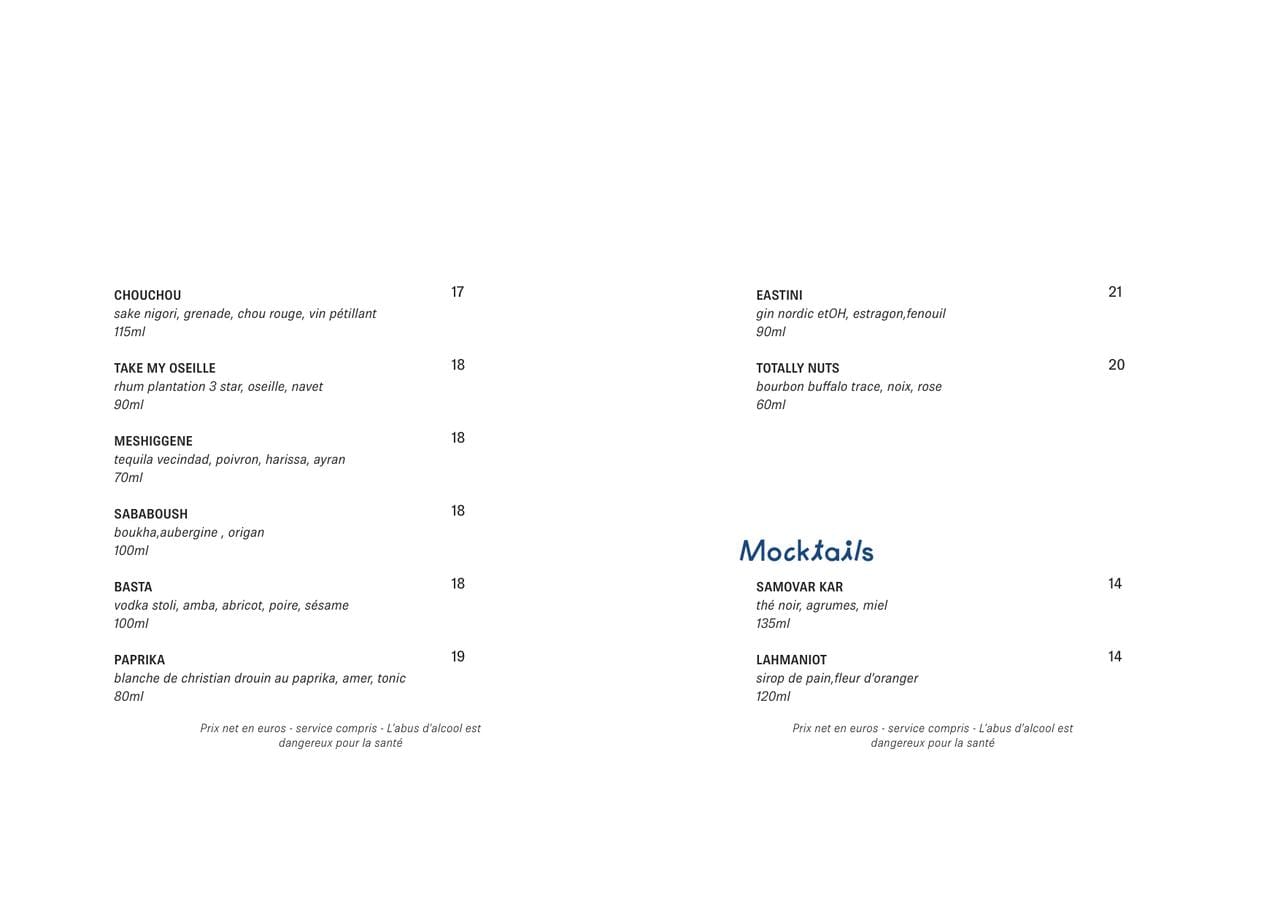
Likewise, the Totally Nuts uses walnut and rose — two ingredients common in pastries throughout Mitteleuropa and the Mediterranean basin. Of course, many of our recipes feature vodka, but we also have a rum-based drink, one with tequila, another with bourbon. We even use a blanche from Christian Drouin — a brand we really love — since we couldn’t find good pálinka in France (Editor’s note: Hungary’s national eau-de-vie).
We also incorporate other less familiar spirits, such as Armenian vodkas — notably apricot-based, which are really closer to eau-de-vie. We had to track down suppliers offering niche products and taste many unknown ingredients to include them in our cocktails. It’s really exciting.
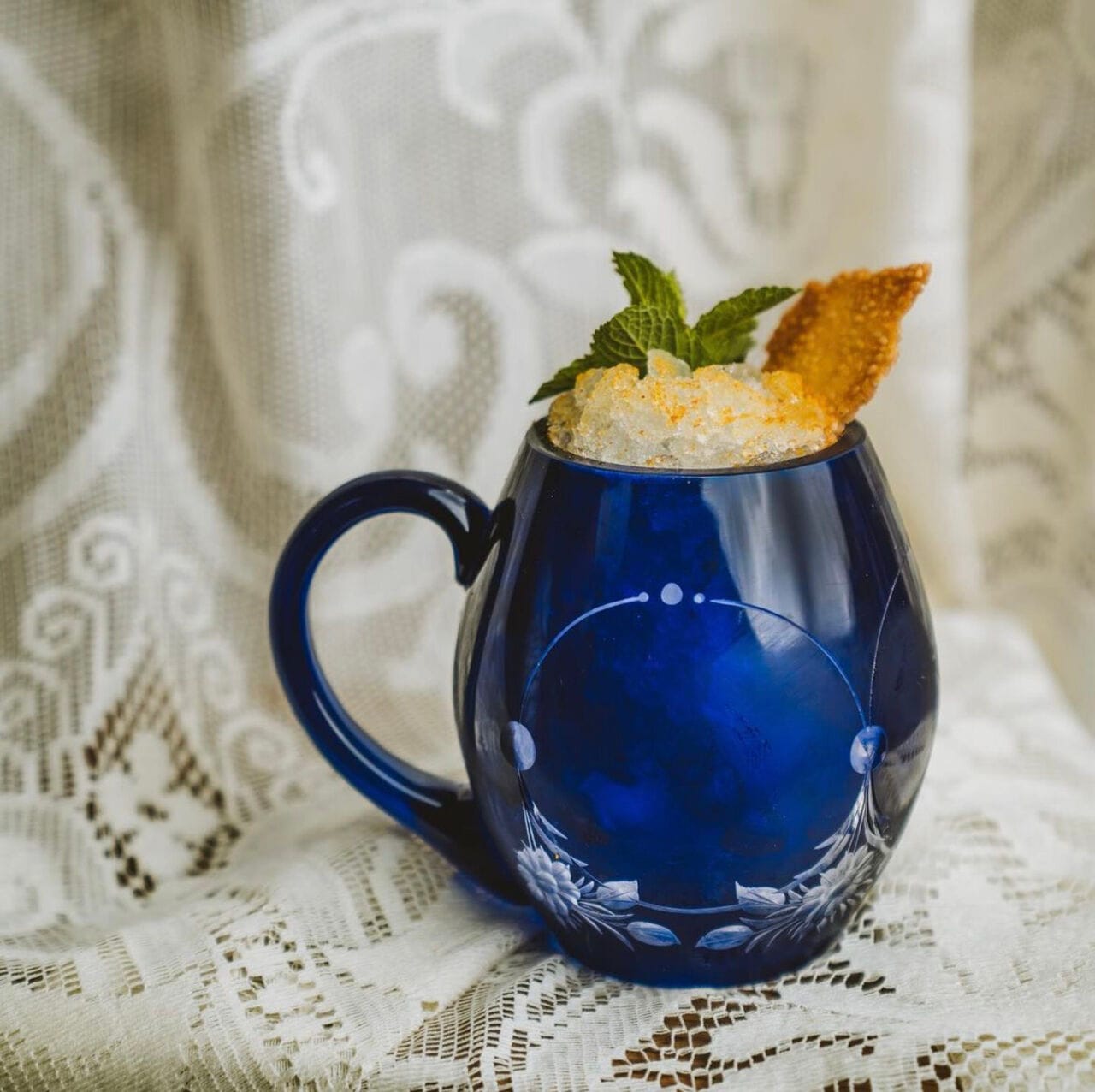
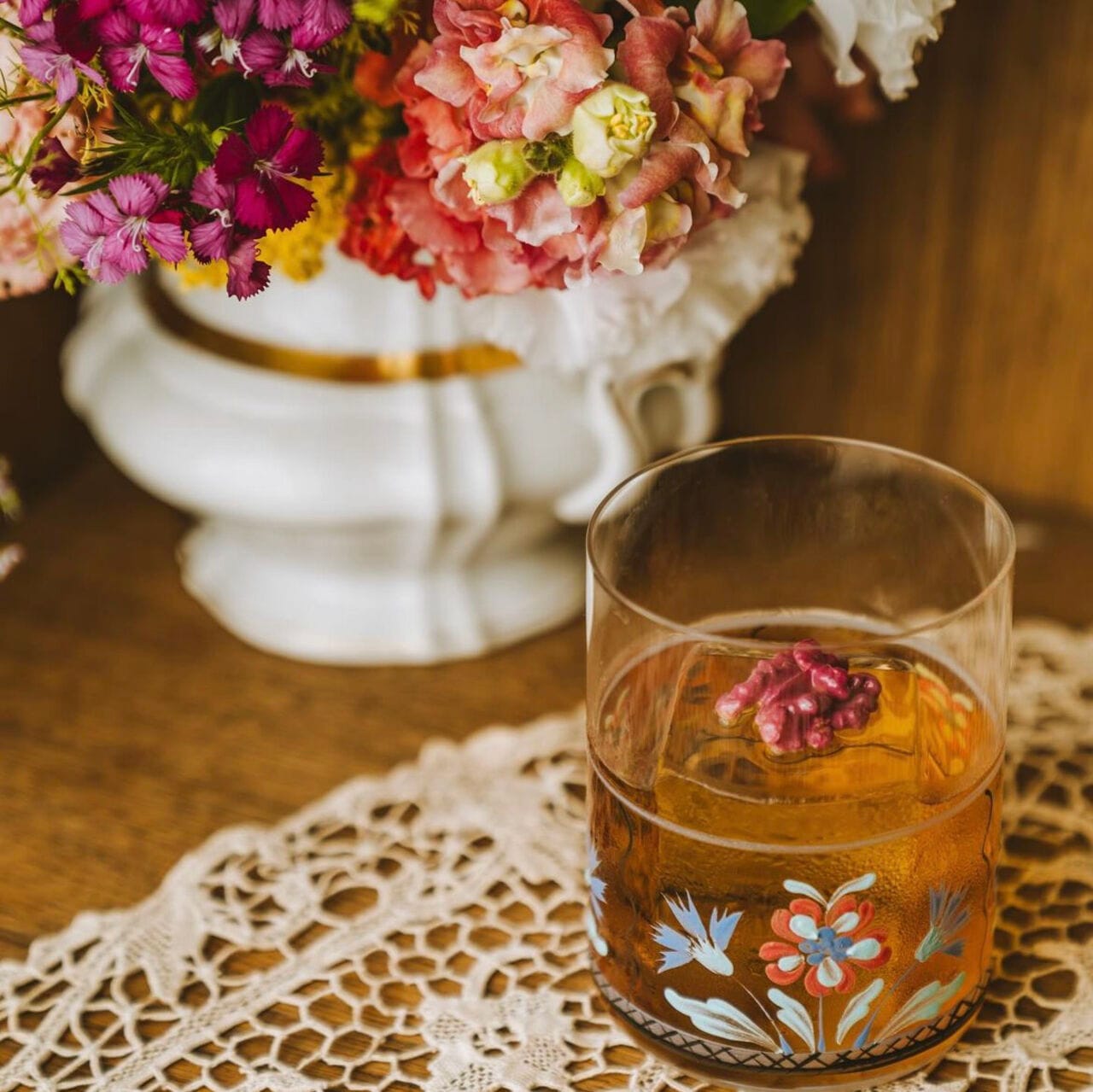
Cocktails Basta and Totally Nuts – Boubalé (Paris)
Fighting waste and addressing social responsibility.
We want to keep some of our signature cocktails while still evolving with the seasons. This menu uses ingredients available year-round, though not necessarily seasonal — such as red cabbage or turnip — and procured in France. Hence the frequent use of verjuice, very little regular lemon, and no exotic fruits or lime. This brings an eco-conscious dimension to the menu.
We also care about reducing waste. For instance, the bread in Totally Nuts comes from the breakfast service. We reuse it to make a syrup inspired by an old Russian technique, “Kvas,” basically a bread beer, though here we skip the fermentation step. The same goes for garnishes made from our preparations.
At the restaurant, pickling is a central element. That’s why it shows up in several cocktails, such as Chouchou (topped with a pickled white cabbage garnish) or the Eastini, which features pickled fennel juice. It’s part of our identity.
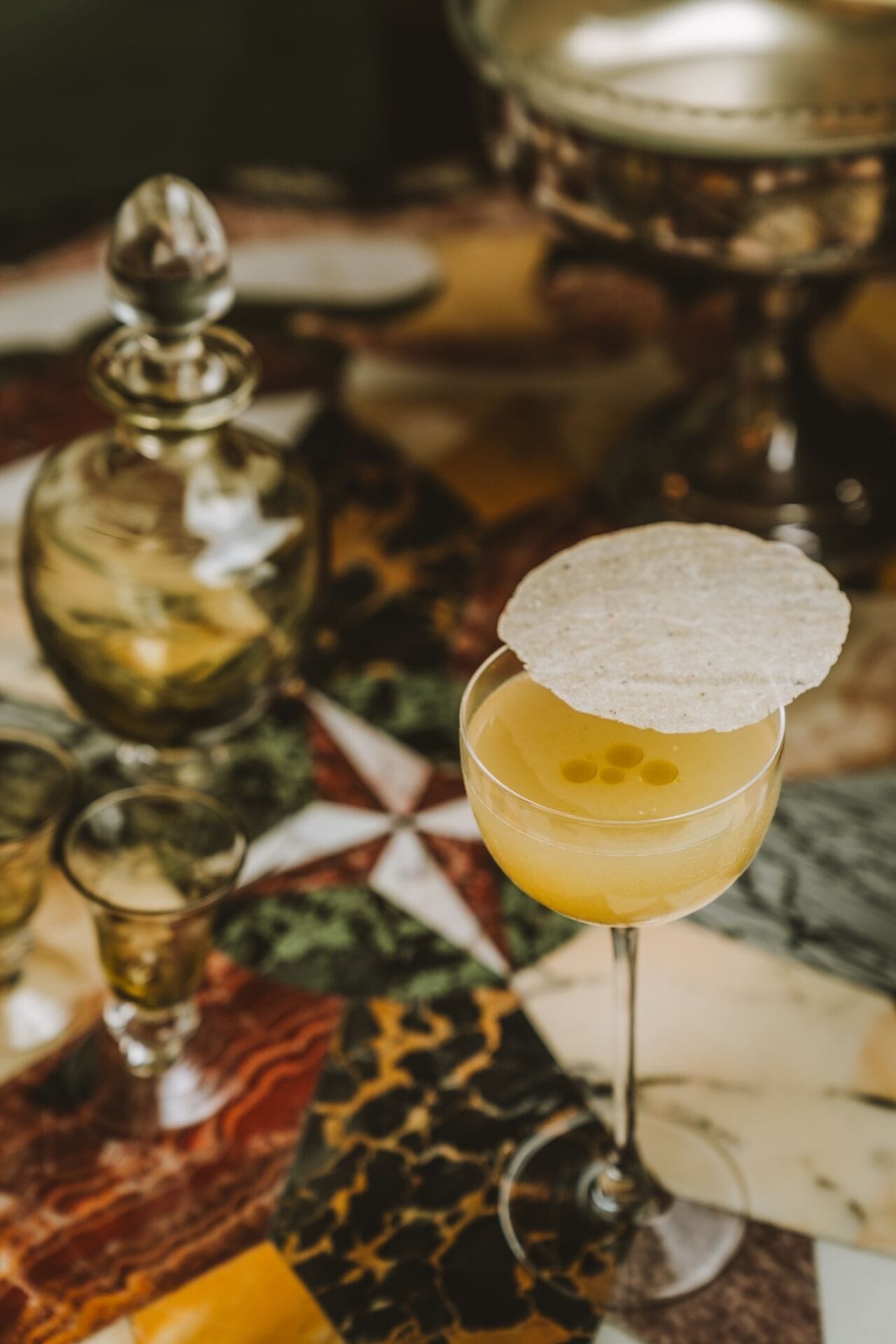
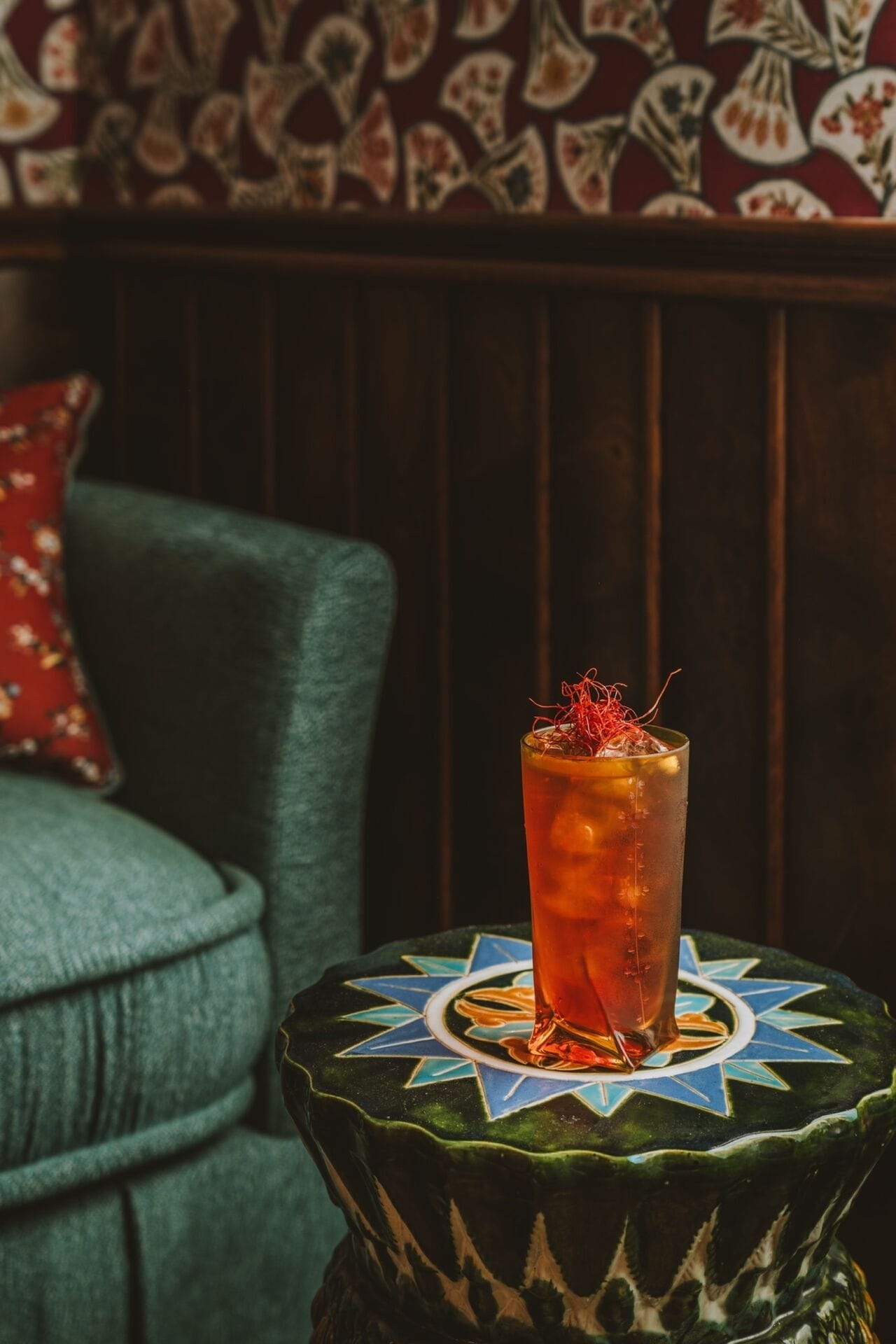
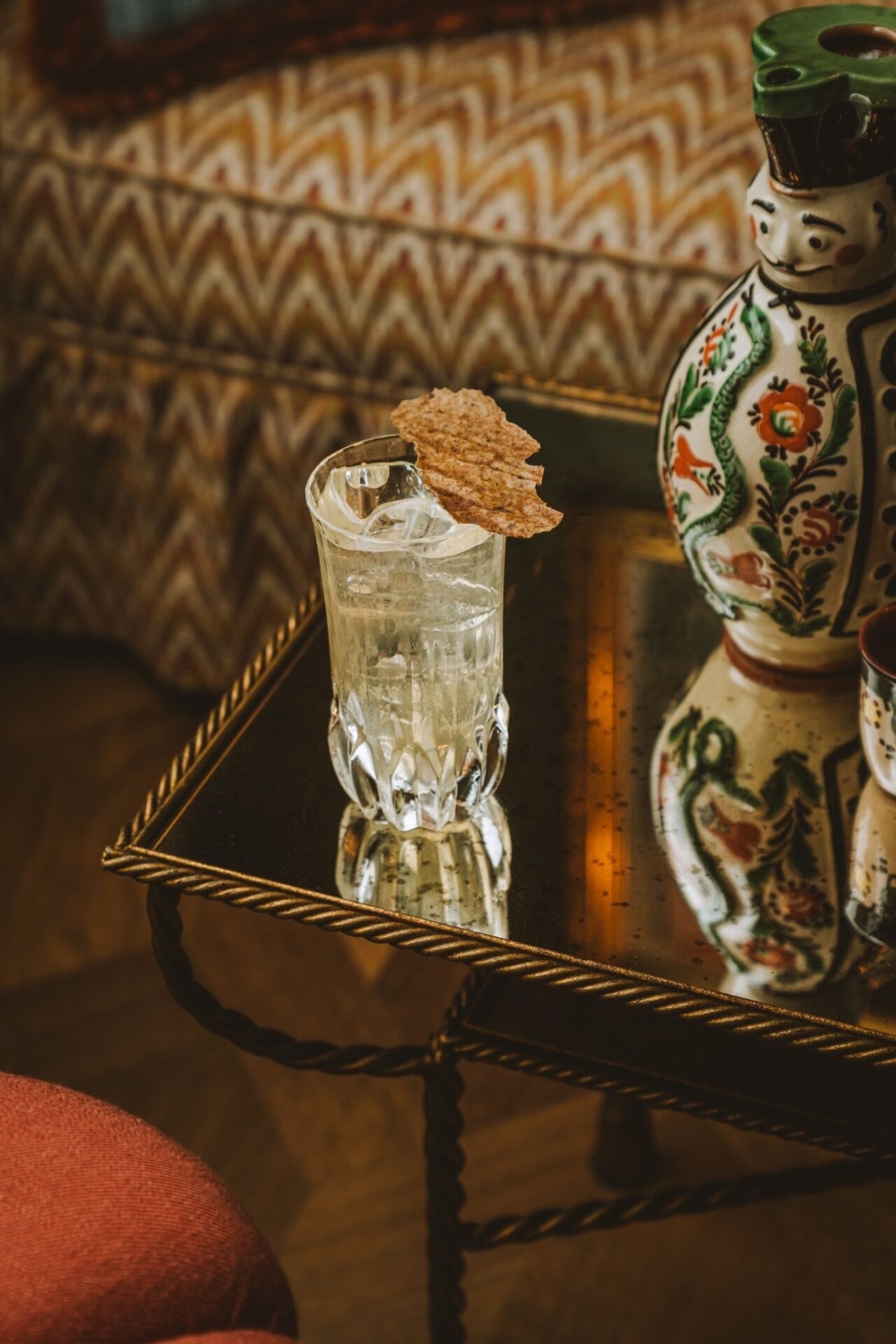
Take My Oseille, Paprika and Lachmaniot – Boubalé (Paris)
Synergy among the group’s various bartenders.
Alongside other addresses of the JLM group, like Tekés and Kapara, we’re developing ways for our bars to interact and maybe collaborate.
By the way, the bar at Kapara is run by former Moonshiner colleagues, just like us: Francesco Onnis and Marco Rubegni. We know each other well. In the same vein, we’re also supported by the group’s Italian head bartender, Emmanuele Broccatelli (Editor’s note: also behind other projects, such as #Allpossibledaiquiris bottled cocktails with La Maison & Velier). He negotiates some contracts, offers support on the administrative side, and oversees everything.
We believe this positive dynamic among the head bartenders is a real advantage.
